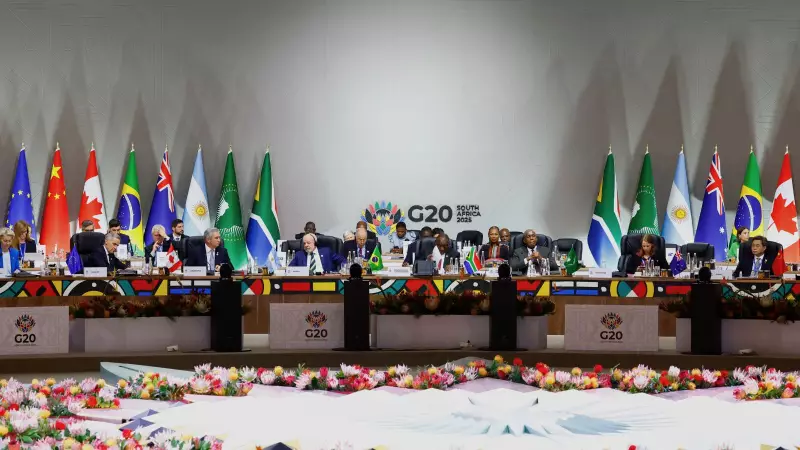
In a significant diplomatic development, the G20 summit held in South Africa successfully adopted a comprehensive declaration despite the notable absence of United States input during the final negotiations. The consensus document, reached after intensive discussions among world leaders, addresses critical global issues including the ongoing Ukraine conflict and pressing economic challenges.
Consensus Reached Amidst Diplomatic Challenges
The G20 leadership summit, hosted in South Africa, culminated in the adoption of a joint declaration that managed to bridge significant geopolitical divides. The declaration was finalized without direct contributions from the United States delegation, marking a unique moment in the forum's history where major powers navigated complex international waters independently.
Diplomatic sources confirmed that the negotiation process involved delicate balancing acts between various national positions, particularly concerning the wording around the Ukraine situation. The final document reflects careful diplomatic craftsmanship that allowed all participating nations to find common ground on multiple fronts.
Key Provisions and Global Economic Focus
The adopted declaration contains substantial commitments addressing the current state of the global economy. Economic stability and sustainable growth emerged as central themes, with participating nations pledging coordinated actions to address inflationary pressures, supply chain disruptions, and emerging market vulnerabilities.
Notably, the document emphasizes the importance of multilateral cooperation in tackling food security concerns and energy market fluctuations. The declaration specifically acknowledges the disproportionate impact of economic challenges on developing nations and outlines measures to provide targeted support through existing international financial institutions.
Ukraine Conflict and Geopolitical Implications
Perhaps the most closely watched aspect of the declaration involved its treatment of the ongoing conflict in Ukraine. The consensus language on Ukraine represents a diplomatic achievement given the divergent positions among G20 members regarding the Russian invasion.
While stopping short of direct condemnation, the declaration incorporates principles of territorial integrity and sovereign equality that align with international law. The document calls for peaceful resolution of conflicts and emphasizes the importance of diplomatic channels in de-escalating tensions.
The successful adoption of the declaration without United States participation raises interesting questions about the evolving dynamics within international diplomatic forums. This development suggests a potential shift in how global consensus might be achieved in future multilateral engagements, particularly as emerging economies play increasingly significant roles in shaping international agreements.
Observers noted that the outcome demonstrates the G20's resilience as a platform for dialogue, even amid significant geopolitical tensions and the absence of input from traditional power centers. The declaration's adoption sets important precedents for how international cooperation might function in an increasingly multipolar world.





